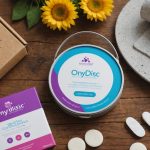Children and adults alike grapple with Attention Deficit Hyperactivity Disorder (ADHD), a condition that can significantly impact daily life. While medications and behavioral therapies have long held center stage in managing ADHD, dietary interventions are gaining attention. How effective are these dietary changes in managing symptoms of ADHD? Let’s explore the landscape of dietary interventions and their potential impact on ADHD symptoms.
Understanding ADHD and Its Symptoms
ADHD is a neurodevelopmental disorder characterized by inattention, hyperactivity, and impulsivity. These symptoms can manifest in various ways, making it challenging for individuals to concentrate, complete tasks, or control their impulses. The exact causes of ADHD remain elusive, but a combination of genetic, environmental, and neurological factors is believed to play a role.
A découvrir également : Can Regular Participation in Outdoor Activities Reduce Symptoms of Depression?
Individuals with ADHD often experience difficulties in academic, professional, and social settings. This has led to an increasing interest in non-pharmacological approaches, including dietary interventions, to help manage these symptoms. But how effective are these dietary changes?
The Role of Nutrition in ADHD Management
Proper nutrition is crucial for brain health and overall well-being. Emerging research suggests that certain dietary interventions may help alleviate ADHD symptoms. These interventions often focus on eliminating specific food groups, incorporating supplements, or adopting certain dietary patterns.
Lire également : Find hope: addiction counselling solutions in Monaco
Eliminating Food Additives and Preservatives
One of the most discussed dietary interventions for ADHD is the elimination of food additives and preservatives. Artificial colors, flavors, and preservatives are often found in processed foods and have been linked to hyperactivity and inattention in some studies. Parents and caregivers may consider removing these additives from their diet to observe any changes in behavior.
Some studies suggest that eliminating these additives can result in a noticeable improvement in ADHD symptoms. However, it is essential to remember that the effects can vary from person to person. While some individuals may experience significant improvements, others may see little to no change.
Incorporating Omega-3 Fatty Acids
Omega-3 fatty acids, commonly found in fish oil, flaxseeds, and walnuts, are vital for brain function. Research indicates that individuals with ADHD often have lower levels of omega-3 fatty acids. Supplementing with omega-3s has shown promise in reducing symptoms such as inattention and hyperactivity.
A study published in the Journal of Pediatrics found that children who took omega-3 supplements exhibited improved attention and behavior. While these findings are encouraging, it is essential to consult with a healthcare professional before starting any supplementation.
Adopting a Balanced Diet
A balanced diet rich in fruits, vegetables, whole grains, and lean proteins can support overall brain health and potentially alleviate ADHD symptoms. Nutrient-dense foods provide essential vitamins and minerals that play a crucial role in cognitive function and behavior regulation.
For example, incorporating foods high in magnesium, zinc, and iron can help improve focus and reduce hyperactivity. Additionally, maintaining stable blood sugar levels through regular, balanced meals can prevent mood swings and improve concentration.
The Impact of Elimination Diets
Elimination diets involve removing specific foods or food groups from the diet to identify potential triggers of ADHD symptoms. The most common elimination diet for ADHD is the Feingold Diet, which eliminates artificial colors, flavors, and certain preservatives. Another approach is the gluten-free, casein-free (GFCF) diet, which excludes gluten and dairy products.
The Feingold Diet
The Feingold Diet was developed by Dr. Benjamin Feingold in the 1970s and aims to reduce hyperactivity by eliminating artificial additives. While some parents and caregivers report improvements in behavior, scientific evidence supporting the diet’s effectiveness is mixed.
A study published in the Journal of Attention Disorders found that the Feingold Diet significantly reduced hyperactivity in a small subset of children. However, larger-scale studies are needed to establish its effectiveness conclusively.
The Gluten-Free, Casein-Free (GFCF) Diet
The GFCF diet eliminates gluten (found in wheat, barley, and rye) and casein (found in dairy products) from the diet. This diet is based on the theory that some individuals with ADHD may have sensitivities to gluten and casein, which can exacerbate symptoms.
While anecdotal evidence suggests that the GFCF diet can improve behavior and focus, scientific studies have yet to confirm these claims. It is crucial to work with a healthcare professional when considering an elimination diet to ensure nutritional adequacy.
Nutritional Supplements and ADHD
In addition to dietary changes, certain nutritional supplements have gained attention for their potential to manage ADHD symptoms. While supplements should never replace a balanced diet, they can complement dietary interventions and provide additional support.
Zinc and Magnesium
Zinc and magnesium are essential minerals that play a role in neurotransmitter function and brain health. Research suggests that individuals with ADHD may have lower levels of these minerals. Supplementing with zinc and magnesium has shown promise in improving attention and reducing hyperactivity.
A study published in the journal Nutrients found that zinc supplementation improved cognitive function and behavior in children with ADHD. Similarly, magnesium supplementation has been associated with decreased hyperactivity and impulsivity.
Iron
Iron is crucial for oxygen transport and brain function. Low iron levels have been linked to symptoms of ADHD, including inattention and impulsivity. Supplementing with iron can help improve cognitive function and behavior.
A study published in the Archives of Pediatrics & Adolescent Medicine found that iron supplementation significantly improved ADHD symptoms in children with low iron levels. It is essential to consult with a healthcare professional before starting any iron supplementation, as excessive iron intake can be harmful.
Vitamin D
Vitamin D is essential for brain health and immune function. Research suggests that individuals with ADHD may have lower levels of vitamin D. Supplementing with vitamin D has shown promise in improving attention and behavior.
A study published in the Journal of Child Psychology and Psychiatry found that vitamin D supplementation significantly improved ADHD symptoms in children. As with any supplement, it is crucial to consult with a healthcare professional before starting vitamin D supplementation.
Practical Tips for Implementing Dietary Interventions
Implementing dietary interventions for ADHD can be challenging, but with the right approach, it can be manageable and rewarding. Here are some practical tips to help you get started:
Work with a Healthcare Professional
Before making any significant dietary changes or starting supplementation, consulting with a healthcare professional is essential. They can provide guidance, monitor progress, and ensure nutritional adequacy.
Keep a Food Diary
Maintaining a food diary can help identify potential food triggers and track changes in behavior. Note any improvements or worsening of symptoms after dietary changes.
Focus on Whole Foods
Opt for whole, nutrient-dense foods over processed and sugary options. Incorporate a variety of fruits, vegetables, whole grains, lean proteins, and healthy fats into the diet.
Be Patient
Dietary interventions may take time to show results. Be patient and consistent with the changes, and give the body time to adjust.
Educate Yourself
Stay informed about the latest research and developments in dietary interventions for ADHD. Knowledge empowers you to make informed decisions and tailor interventions to individual needs.
While dietary interventions show promise in managing ADHD symptoms, individual responses can vary. Eliminating food additives, incorporating omega-3 fatty acids, adopting a balanced diet, and considering nutritional supplements can provide valuable support. However, these interventions should be approached with caution and under the guidance of a healthcare professional.
In conclusion, dietary interventions can complement traditional treatments for ADHD and provide additional support in managing symptoms. By making informed dietary choices and working closely with healthcare professionals, individuals with ADHD can optimize their overall well-being and improve their quality of life.













